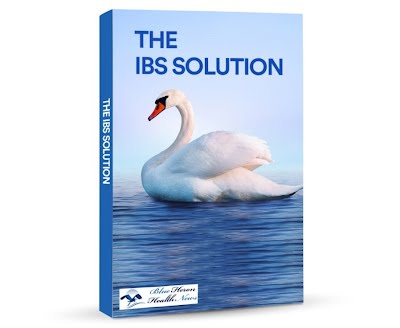
The IBS Program™ / The IBS Solution™ By Julissa Clay The IBS program comes in the format of a step-by-step program that can be purchased by anyone curious. The product is designed for everyone who wants to control their IBS symptoms and enjoy a pain-free life. One of the most impressive aspects of this program is that you may complete the workouts. You may do the workouts during the lunch hour, on a flight, or even at the house, and the great news is that you don’t need special equipment to complete them.
Can IBS be cured?
Irritable Bowel Syndrome (IBS) is a chronic functional gastrointestinal disorder, and while it cannot be cured, it can often be effectively managed to reduce symptoms and improve quality of life. Because IBS is a condition that affects the way the gut functions, treatment is focused on managing symptoms rather than providing a cure. For many people, a combination of lifestyle changes, diet modifications, and medications can significantly alleviate symptoms.
Here’s an overview of how IBS is managed:
1. Dietary Management
- Low-FODMAP Diet: One of the most effective dietary approaches for managing IBS is the low-FODMAP diet. FODMAPs are types of carbohydrates that are poorly absorbed in the small intestine, leading to bloating, gas, and diarrhea. Avoiding high-FODMAP foods (such as certain fruits, vegetables, dairy products, and wheat) can help reduce IBS symptoms in many people.
- High-Fiber Diet: For individuals with constipation-predominant IBS (IBS-C), increasing dietary fiber (particularly soluble fiber found in oats, fruits, and vegetables) can help regulate bowel movements. However, people with diarrhea-predominant IBS (IBS-D) should be cautious with fiber intake, especially insoluble fiber.
- Avoiding Trigger Foods: Identifying and avoiding specific foods that trigger IBS symptoms (such as fatty foods, caffeine, alcohol, and artificial sweeteners) is key to managing the condition.
2. Medications
Medications can help manage specific IBS symptoms, but they do not cure the condition.
- Antispasmodics: These medications (e.g., hyoscine, dicyclomine) help relieve abdominal cramps and pain by relaxing the muscles of the gut.
- Laxatives: For people with constipation-predominant IBS, over-the-counter laxatives (such as polyethylene glycol) or prescription medications (such as lubiprostone or linaclotide) can help ease constipation.
- Antidiarrheal Medications: For people with diarrhea-predominant IBS, medications like loperamide (Imodium) can help reduce diarrhea.
- Probiotics: Some studies suggest that probiotics may help improve IBS symptoms by promoting a healthy balance of gut bacteria.
- Antidepressants: In some cases, low doses of tricyclic antidepressants (TCAs) or selective serotonin reuptake inhibitors (SSRIs) are prescribed to relieve pain and improve bowel habits, as they affect the gut-brain interaction and can help reduce the sensation of pain in the intestines.
3. Stress Management and Psychological Therapies
Stress and emotional factors can trigger or worsen IBS symptoms. Managing stress through various strategies can be helpful:
- Cognitive Behavioral Therapy (CBT): CBT is a form of therapy that helps individuals change their thought patterns and behavior, and it has been shown to help reduce IBS symptoms, especially when stress or anxiety are contributing factors.
- Mindfulness and Relaxation Techniques: Techniques such as yoga, meditation, and deep breathing can help manage stress and reduce the impact of IBS triggers.
- Gut-Directed Hypnotherapy: This therapy involves guided relaxation and suggestions focused on the gut, which has been shown to reduce IBS symptoms in some people.
4. Lifestyle Modifications
- Regular Exercise: Physical activity can help regulate digestion and reduce stress, both of which can improve IBS symptoms.
- Adequate Hydration: Drinking enough water is especially important for individuals with IBS, particularly if constipation is an issue.
- Good Sleep Hygiene: Poor sleep can worsen IBS symptoms, so maintaining a regular sleep schedule and good sleep habits is beneficial.
5. Long-Term Outlook
- While there is no cure for IBS, most people can find ways to manage their symptoms effectively with the right combination of diet, lifestyle changes, and medical treatments.
- IBS symptoms can vary over time, with periods of symptom flare-ups followed by times when symptoms are minimal or absent.
- With appropriate management, people with IBS can lead normal, productive lives.
Conclusion:
IBS cannot be cured, but it can be managed through dietary changes, medications, stress management, and lifestyle modifications. By identifying and avoiding triggers, and working closely with a healthcare provider to develop an individualized treatment plan, most people with IBS can achieve significant symptom relief and improve their quality of life.
The IBS Program™ / The IBS Solution™ By Julissa Clay The IBS program comes in the format of a step-by-step program that can be purchased by anyone curious. The product is designed for everyone who wants to control their IBS symptoms and enjoy a pain-free life. One of the most impressive aspects of this program is that you may complete the workouts. You may do the workouts during the lunch hour, on a flight, or even at the house, and the great news is that you don’t need special equipment to complete them.